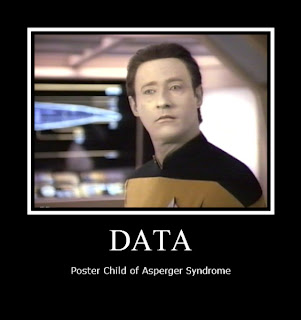I am 3/4 with you guys:
INTP
Slight Preference to Introversion to Extroversion (12%)
Slight Preference of Intuition over Sensing (16%)
Moderate Preference Thinking over Feeling (31%)
Slight Preference of Perceiving over Judging (19%)
>
INTPs are pensive, analytical folks. They may venture so deeply into thought as to seem detached, and often actually are oblivious to the world around them.
This is kind of me, seeming detached and in my own thought, I don't know if I'm "actually oblivious to world around" lol but that may be my obliviousness talking.
>Precise about their descriptions, INTPs will often correct others (or be sorely tempted to) if the shade of meaning is a bit off. While annoying to the less concise, this fine discrimination ability gives INTPs so inclined a natural advantage as, for example, grammarians and linguists.
I am super concise in my word choice, both online and real life.
>INTPs are relatively easy-going and amenable to almost anything until their principles are violated, about which they may become outspoken and inflexible. They prefer to return, however, to a reserved albeit benign ambiance, not wishing to make spectacles of themselves.
haahahahahaha this is me so much. I am basically the easiest going guy ever, if you fuck me IRL you are basically dead to me and I can/will hold a grudge/be petty for a long while. I am very outspoken and inflexible regarding my belief systems, though only outspoken if I am told it is wrong or their belief system is a polar opposite. I'm fine with others doing whatever, just don't tell me that I should be or feel the same way.
>
A major concern for INTPs is the haunting sense of impending failure. They spend considerable time second-guessing themselves. The open-endedness (from Perceiving) conjoined with the need for competence (NT) is expressed in a sense that one's conclusion may well be met by an equally plausible alternative solution, and that, after all, one may very well have overlooked some critical bit of data. An INTP arguing a point may very well be trying to convince himself as much as his opposition. In this way INTPs are markedly different from INTJs, who are much more confident in their competence and willing to act on their convictions.
Also me, I was crippled with "fear of failure" for the majority of my life, finally starting to get out of it, tough stuff though. JUST DO IT!
>Mathematics is a system where many INTPs love to play, similarly languages, computer systems--potentially any complex system. INTPs thrive on systems. Understanding, exploring, mastering, and manipulating systems can overtake the INTP's conscious thought. This fascination for logical wholes and their inner workings is often expressed in a detachment from the environment, a concentration where time is forgotten and extraneous stimuli are held at bay. Accomplishing a task or goal with this knowledge is secondary.
Depending on your definition of "system" this is also me. When I find something I find interesting, I delve into it and learn literally as much as I can.
>
INTPs and Logic -- One of the tipoffs that a person is an INTP is his or her obsession with logical correctness. Errors are not often due to poor logic -- apparent faux pas in reasoning are usually a result of overlooking details or of incorrect context.
I am super logical and constantly try to look at the root cause of things.
>
Games NTs seem to especially enjoy include Risk, Bridge, Stratego, Chess, Go, and word games of all sorts. (I have an ENTP friend that loves Boggle and its variations. We've been known to sit in public places and pick a word off a menu or mayonnaise jar to see who can make the most words from its letters on a napkin in two minutes.) The INTP mailing list has enjoyed a round of Metaphore, virtual volleyball, and a few 'finish the series' brain teasers.
I like game where thinking is involved and you have to outwit your opponent, so this is also pretty on the money.
Interesting stuff, thanks for bringing it up!
Now, I came here with a question. How would you concisely and easily explain Asperger's to a Neurotypical? Specifically in the realm of how it's a challenge we've all overcame to some degree (we work on it always!) I am looking for advice as I may need to be able to "market myself" in a sense as having conquered Aspergers and am looking for an easy way to describe to Neurotypicals how an Asperger's life is different than the majority of NT populations lives without it coming across as fake or tooting my own horn too much. Does that make sense?
I kind of have the how we're different part down (NT's are Mac computers, easy to sort and file everything, clean and concise, while Asperger's are Linux, we have to delve through hoops and hurdles and explore every nook and cranny, it's a messy process but we'll have greater understanding of the details) but having a bitch trying to tout living with Aspergers successfully as a success or accomplishment












 glad the meaning wasn't lost!
glad the meaning wasn't lost!
